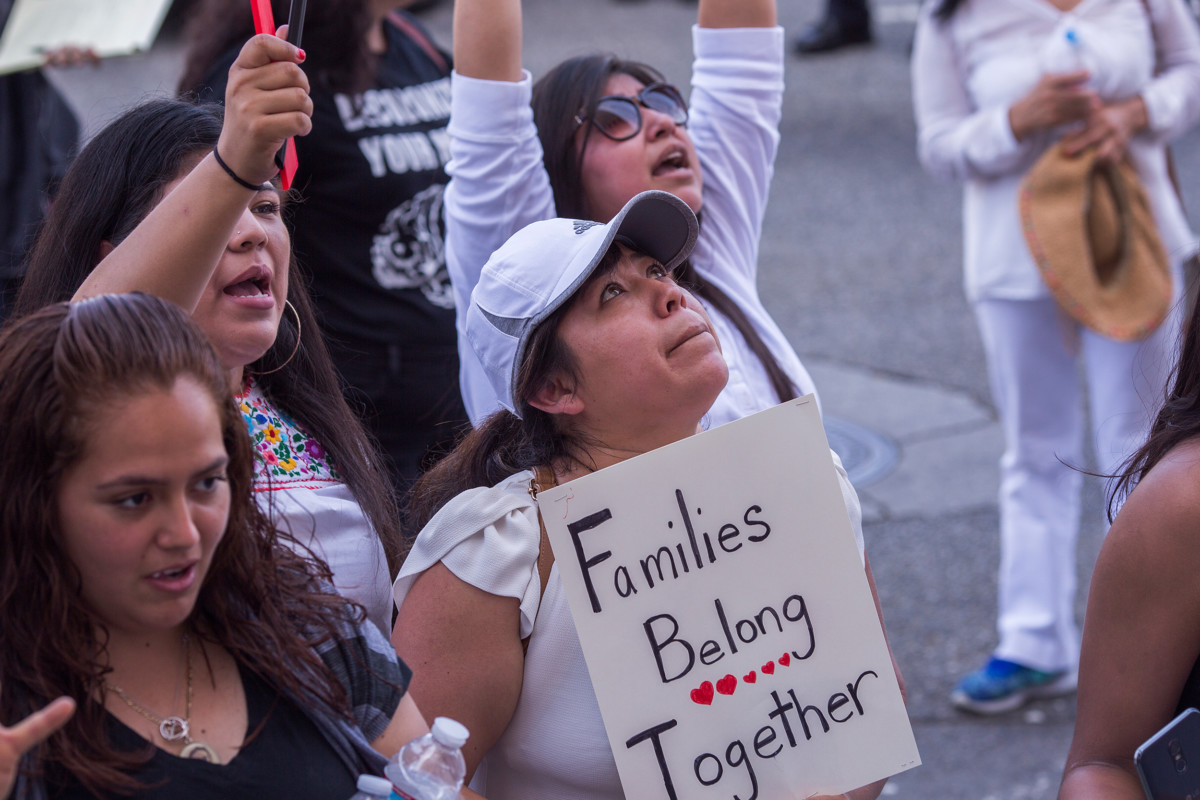Support justice-driven, accurate and transparent news — make a quick donation to Truthout today!
When Attorney General Jeff Sessions on June 11 overruled the decision in a controversial immigration case called Matter of A-B-, he made it harder for women escaping sexual and physical abuse to qualify for asylum in the United States.
Can the US attorney general unilaterally overturn a court case?
Yes, because, as I teach my surprised law students, immigration judges are not part of the judicial branch. They are attorneys in the Department of Justice.
That means normal assumptions about judicial independence and freedom from political influence do not apply in immigration proceedings.
How Immigration Trials Work
People end up in immigration court for various reasons.
Refugees who fled persecution in their country can apply for asylum in the U.S. People facing deportation may request “cancellation of removal,” which allows them to stay in the country. Other noncitizens may be in the process of becoming a legal permanent US resident.
Their cases will be heard by one of approximately 330 immigration judges who preside over 58 US immigration courts. As of March 2018, these courts had 345,000 active cases, which averages out to about 1,000 cases per judge.
That’s double the caseload of federal district court judges, and immigration courts have tighter budgets and far less administrative support.
As a result, the immigration court system is congested. Cases can take years to complete.
Immigration judges issued 137,875 decisions in 2016, according to DOJ statistics. Just under 70 percent were deportation orders.
Who Does What?
Immigration proceedings look much like a criminal trial, but the process does not come with the same constitutional protections.
Immigrants are not entitled to a court-appointed defense attorney, for example. They may hire a lawyer or, if they’re lucky, find pro bono counsel.
Only 37 percent of all immigrants have an attorney to represent them in immigration court.
Immigrants who’ve been convicted of certain crimes, including low-level offenses, are subject to mandatory detention during their immigration hearings. They are often brought into the courtroom wearing a jumpsuit and shackles. Eighty-six percent of immigrants who’ve been detained will appear without a lawyer.
Immigration trials also lack other constitutional safeguards required in criminal trials.
The judge is from the Department of Justice, which has law enforcement duties determined by the attorney general. Since the government’s prosecutor comes from Immigration and Customs Enforcement – a Department of Homeland Security agency tasked with immigration enforcement – their political priorities may overlap.
In a normal federal trial, the judge would be an independent member of the US judiciary, a different branch of government.
The Administrative Appeals Process
Immigrants may appeal an immigration judge’s deportation order to the Board of Immigration Appeals, a Virginia-based Department of Justice agency. About 9 percent choose to do so.
The Board currently has 20 members, 16 full-time and four temporary. Individually or as a panel, they decide roughly 30,000 appeals per year.
To expedite the process, the Board of Immigration Appeals frequently issues decisions that “affirm without opinion,” meaning it can confirm a deportation order without providing any reasoning or explanation.
US law permits the attorney general to intervene in this appeals process.
The attorney general can take over a case at the request of the Board of Immigration Appeals or direct it to refer a case to him. Historically, most have done so just once or twice a year. Sessions has reviewed four immigration cases in 2018 alone.
Federal regulations also empower the attorney general to overrule the board, decide what types of appeals it can handle and remove members at will.
Federal Appeals Court
Immigrants may further appeal decisions made by the Board of Immigration Appeals to the US Courts of Appeals, the court one level below the Supreme Court.
Very few can afford to do so. Of the roughly 300,000 immigration cases heard each year, only 2 percent are appealed to a federal judge. In 2016, 5,240 immigration appeals were filed with the federal appellate courts.
On average, nationwide, just 8 percent of those appeals are granted. That either enables the immigrant to stay or sends the case back to the Board of Immigration Appeals to correct an error.
For some, the victory may come too late. Though immigrants cannot be deported while their case makes its way through immigration court, that protection ends once their appeal reaches the federal level.
Roughly half of all immigrants who will ultimately prevail in a federal appellate court risk being deported while their appeals are pending there.
Trump is silencing political dissent. We appeal for your support.
Progressive nonprofits are the latest target caught in Trump’s crosshairs. With the aim of eliminating political opposition, Trump and his sycophants are working to curb government funding, constrain private foundations, and even cut tax-exempt status from organizations he dislikes.
We’re concerned, because Truthout is not immune to such bad-faith attacks.
We can only resist Trump’s attacks by cultivating a strong base of support. The right-wing mediasphere is funded comfortably by billionaire owners and venture capitalist philanthropists. At Truthout, we have you.
Truthout has launched a fundraiser, and we have only 48 hours left to raise $21,000. Please take a meaningful action in the fight against authoritarianism: make a one-time or monthly donation to Truthout. If you have the means, please dig deep.
